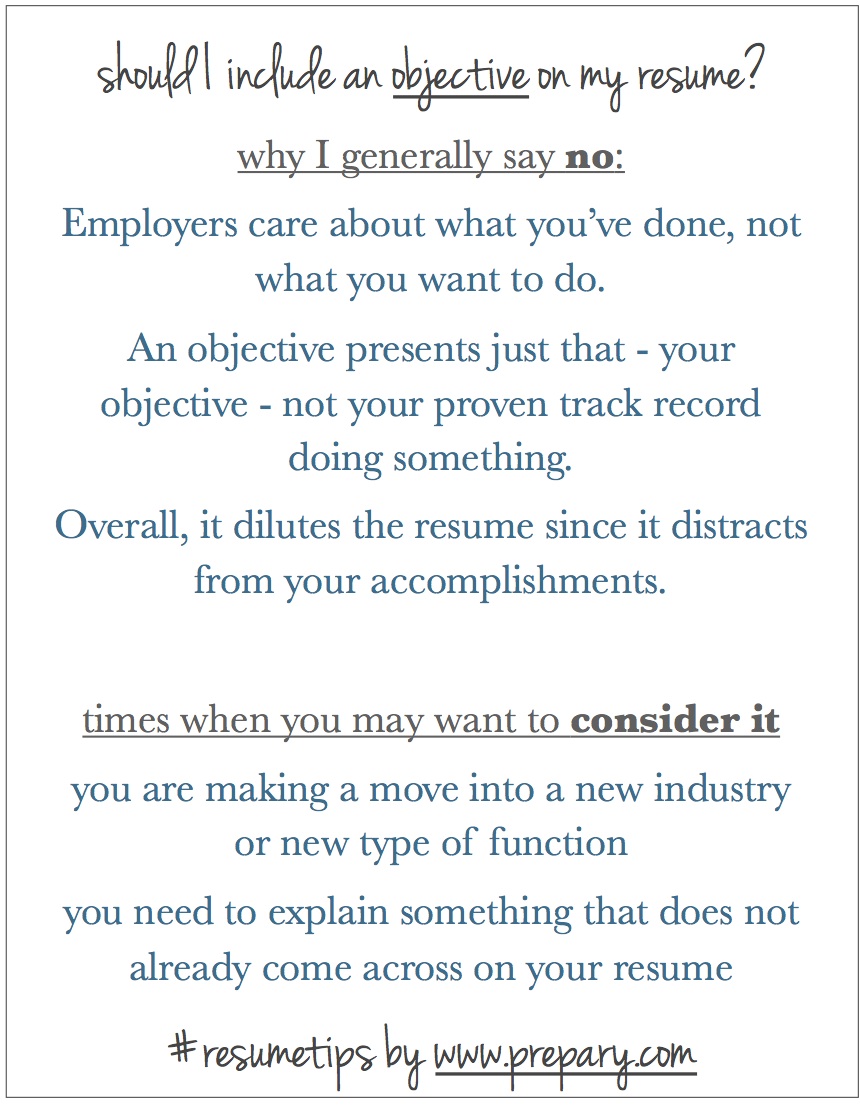Almost every time I work with people on their resumes, this question comes up: Should I include an objective on my resume?
As with so many aspects of the job search, this is fairly subjective, but happy to give my opinion (based on looking at TONS of resumes). The short answer is no, I don’t think it is necessary for most people to include an objective, and here’s why:

- The main reason I don’t think objectives are necessary, is because recruiters (and hiring managers) care about what a person has done in the past (their proven track record) and less about what they want to do. Objectives are a way of saying “hey, here’s what I want to do next!” and while that’s great, companies don’t operate around those wants. If you’ve been in your job search for a while, I’m sure you’ve noticed that too.
- If you are applying for a certain job, getting that job is essentially your objective (or it should be). Therefore putting another objective at the top of your resume is duplicating information. By applying, you’re already saying “this is the job I want” – so no need to say it twice. Also, objectives can sometimes accidentally contradict your application if for some reason you have a misunderstanding of what the job entails.
- Most of all, since recruiters care about how your past experiences will enable you to do the job, an objective serves as filler on a resume and dilutes from your experience. Basically it’s distracting the reader from what they really care about and what really makes an impact.
There are some times when it may be good to include an objective. Note: I don’t think it’s ever going to be the make or break of getting a job (or even an interview), but there are a few scenarios in which it won’t hurt to just include it.
- You’re making a career move that is untraditional in some way and when someone looks at your resume they’re not going to “get it” – In this case, your objective is your chance to explain that you do in fact want to move in a certain direction, despite your experience not aligning with it.
- You need a spot on your resume to explain something else that isn’t coming across – This can be done through a summary or an objective, and for the same reason as above (getting something in there that otherwise wouldn’t be obvious).





